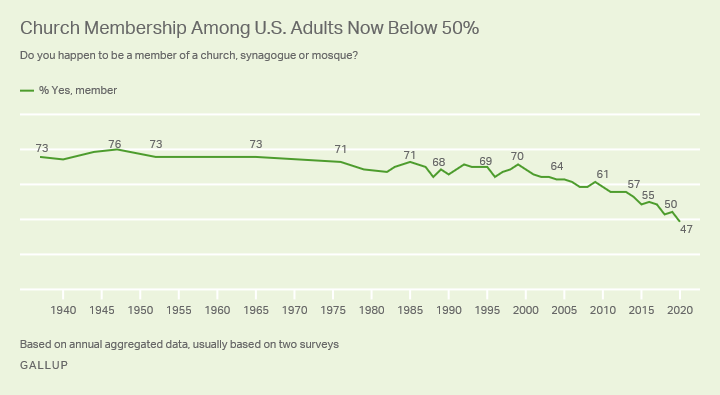The world is changing fast, isn’t it? It feels like every day there is a new technological advancement and something we just got used to is now no longer relevant. Just like the rapidly changing pace of trends and slang, new challenges are appearing everywhere. Things we as leaders never learned how to deal with, but are now forced to figure out solutions to help our community, especially the youth.
Navigating church leadership in the 21st century comes with unique challenges that require wisdom, flexibility, and a deep understanding of modern society. Leaders today face a rapidly changing world where technology, social issues, and shifting cultural values play significant roles in shaping the church’s direction. Traditional approaches to leadership may not be enough to address the needs of diverse congregations, many of whom seek relevance and connection in their spiritual communities.
In this podcast, we explore everything you need to know about leading churches in the modern day. We’ll also cover 5 of the newest and most difficult challenges we face as churches today, and how to overcome them.
Let’s dive in.
Estimated reading time: 11 minutes
Table of contents
Leading 21st Century Churches

If you are a pastor or a leader in a church, you know how hard it is to lead a church in the 21st century. Problems and challenges face the church like never before, and we are forced to deal with things we’ve never had to deal with before. The world is changing fast, and our youth are growing up in a very different world than we grew up in.
In this section, we’ll cover what it means to lead a church in the 21st century. From embracing modern challenges to building strong leadership teams, we’ll explore what it looks like to pastor in today’s world.
Embracing Modern Challenges
Leading and shepherding the church in the 21st century requires understanding and adapting to the many changes in society. The role of a church leader today is different from what it was even a few decades ago. Technology has changed how we communicate, learn, and connect with others.
Church ministry now often includes online services, social media outreach, and digital resources to meet people where they are. For many pastors and ministry leaders, this means developing new skills and strategies to engage their congregations both in person and online.
Cultural shifts also play a significant role in how the church operates today. As society becomes more diverse and issues like social justice and mental health come to the forefront, church leaders must be prepared to address these topics with sensitivity and compassion. Understanding the needs and concerns of the local church community is essential for leading effectively. This may require ongoing education and a willingness to listen and learn from others, including those outside the church.
Building Strong Leadership Teams
One of the key responsibilities of a church leader is to build and maintain a strong leadership team. Leadership teams are essential for carrying out the church’s mission and ensuring that all aspects of church ministry are functioning smoothly. Many pastors find that leading effectively means not doing everything themselves but empowering others to take on leadership roles within the church.
Building a strong leadership team starts with identifying individuals who have a heart for service and the necessary skills to contribute to the ministry. It’s important for ministry leaders to invest in these individuals through training, mentoring, and providing opportunities for growth. A healthy leadership team is one that works together in unity, supporting one another and sharing the vision for the church’s future.
Communication is key to maintaining a strong leadership team. Regular meetings, open discussions, and clear expectations help ensure that everyone is on the same page. Encouraging feedback and creating an environment where team members feel valued and heard can prevent misunderstandings and conflicts. When leadership teams are strong, they are better equipped to serve the needs of the local church and help guide others in their Christian life.
Fostering Spiritual Growth and Community
At the heart of church ministry is the goal of fostering spiritual growth and building a strong sense of community. Church leaders are responsible for creating an environment where individuals can grow in their Christian life and develop meaningful relationships with others. This involves providing sound teaching, offering opportunities for worship and prayer, and encouraging people to use their gifts in service to the church and the wider community.
Many pastors understand that spiritual growth is not just about what happens on Sunday mornings but involves the entire life of the church. Small groups, Bible studies, and outreach programs are all important parts of helping people deepen their faith. In addition to spiritual growth, building community within the church is crucial. Church leaders can facilitate this by organizing events, encouraging fellowship, and creating spaces where people feel welcome and connected.
In the 21st century, leading and shepherding the church means being attentive to the spiritual and relational needs of the congregation. By focusing on these areas, church leaders can help their communities thrive, even in a rapidly changing world. Through dedication, prayer, and a commitment to serving others, ministry leaders can guide their churches effectively and ensure that the local church remains a place of hope, support, and growth for all who enter its doors.
5 Modern Challenges and How to Navigate Them

Now that we’ve covered what you need to know about leading in the 21st century, let’s get into 5 specific challenges facing church leadership today, and how you can navigate them. Remember that we don’t have the time or word count to explore each of these issues with the depth they deserve. Rather, let this be a primer to encourage you and get you started. We advise taking a deeper look at issues that are relevant to your church community on how you can deal with them properly.
Ready to learn more? Let’s jump in.
1. Declining Attendance
Declining attendance is a significant challenge for the church today. Many people, especially younger generations, are attending church less frequently or not at all. According to Gallup, church membership is below 50% as of 2020, and has been on a decline for years now.

This trend can be discouraging for ministry leaders who want to see their congregations grow and thrive. One of the main reasons for declining attendance is that people often feel disconnected or that the church is not relevant to their daily lives.
To overcome this challenge, church leaders need to find ways to connect with their communities in meaningful ways. This might involve updating worship styles, offering programs that address modern issues, or using technology to reach people where they are. Building strong relationships within the church is also crucial. When people feel valued and supported, they are more likely to stay involved. To lead effectively in the face of declining attendance, leaders must be adaptable, open to change, and focused on creating a welcoming environment where everyone feels they belong.
2. Generational Gaps
Generational gaps present a significant challenge in the church today, as different age groups often have varying expectations, worship styles, and communication preferences. Older members may prefer traditional hymns and sermons, while younger generations might be drawn to contemporary music and interactive discussions. This divide can lead to misunderstandings and feelings of disconnect within the congregation.
Most pastors recognize the importance of addressing these gaps to create a unified church community. To overcome this challenge, church leaders can foster intergenerational relationships by encouraging older and younger members to serve together in ministry. This builds mutual respect and understanding. Offering a variety of worship styles and programs that cater to different age groups can also help bridge the gap. For example, incorporating both traditional and modern elements into services allows everyone to feel included.
By being intentional about creating spaces where all generations feel valued, pastors can possibly lead their congregations to greater unity, ensuring that the church remains a place where people of all ages can grow in their faith together.
3. Social Justice Issues

Social justice issues are a significant challenge for the church today. As society increasingly focuses on topics like racism, poverty, and inequality, congregations often look to their leaders for guidance on these cultural issues. However, addressing social justice can be complex, as different members of the church may have varying opinions on these matters. This can lead to division within the congregation if not handled carefully.
To overcome this challenge, church leaders can:
- Educate themselves: Understanding social justice issues from a biblical perspective helps leaders speak truthfully and compassionately.
- Encourage open dialogue: Creating spaces where members can discuss these issues respectfully allows for different viewpoints to be heard.
- Lead by example: Showing a commitment to justice through the church’s actions, such as community service or partnerships with local organizations, demonstrates the church’s values in practice.
- Focus on unity: Emphasizing the shared mission of the church and the importance of loving one another can help bridge divides.
By addressing social justice issues thoughtfully, churches can engage with cultural issues while maintaining unity and purpose.
4. Mental Health Awareness
Mental health awareness is an important yet challenging issue for the church today. Many people in congregations struggle with mental health concerns like anxiety, depression, and stress, often compounded by the pressures of work life balance. However, mental health has not always been openly discussed in church settings, which can lead to feelings of isolation for those who are suffering.
To overcome this challenge, church leaders can begin by creating a supportive environment where mental health is addressed with compassion and understanding. Acknowledging that mental well being is a vital part of overall health encourages open conversations within the congregation. Pastors and ministry leaders can also educate themselves on mental health issues and offer resources or referrals to professional counseling when needed.
Integrating mental health awareness into sermons, small groups, and other church activities can help normalize these discussions. By fostering a culture of care and support, the church can play a crucial role in helping individuals find the help they need while promoting a healthier work life balance and overall wellbeing within the community.
5. Balancing Tradition and Innovation
Balancing tradition and innovation is a significant challenge for the church today. Many congregations hold deeply to their traditions, such as hymns, liturgies, and rituals that have been part of their identity for generations. However, as society changes, there is a growing need to innovate in order to remain relevant and engaging, especially for younger members.
To overcome this challenge, church leaders must find a way to honor the past while also embracing new ideas. This can involve carefully blending traditional and modern elements in worship services, such as incorporating contemporary music alongside classic hymns or using modern technology to enhance traditional practices.
Listening to the congregation is key. Understanding the values and preferences of both long-time members and newcomers allows leaders to make thoughtful decisions that respect the church’s heritage while also fostering growth. Encouraging open dialogue about changes and providing clear explanations for why certain innovations are being introduced can help ease transitions.
By balancing tradition and innovation, churches can create a vibrant community that honors its roots while also looking forward to the future.
Church Leadership Challenges

Leading a church in the 21st century comes with its own set of challenges, from navigating cultural shifts and declining attendance to bridging generational gaps and addressing social justice and mental health concerns. However, with thoughtful leadership, a willingness to adapt, and a commitment to the core principles of faith, church leaders can effectively guide their congregations through these complexities.
By balancing tradition with innovation, fostering open communication, and creating supportive environments, the church can continue to be a place of spiritual growth, community, and hope. As we move forward, it is crucial for church leaders to remain grounded in their mission while also being open to the new ways God may be calling them to serve. In doing so, they can ensure that the church remains a vital and vibrant part of people’s lives in this ever-changing world.
More Resources for Church Leading





